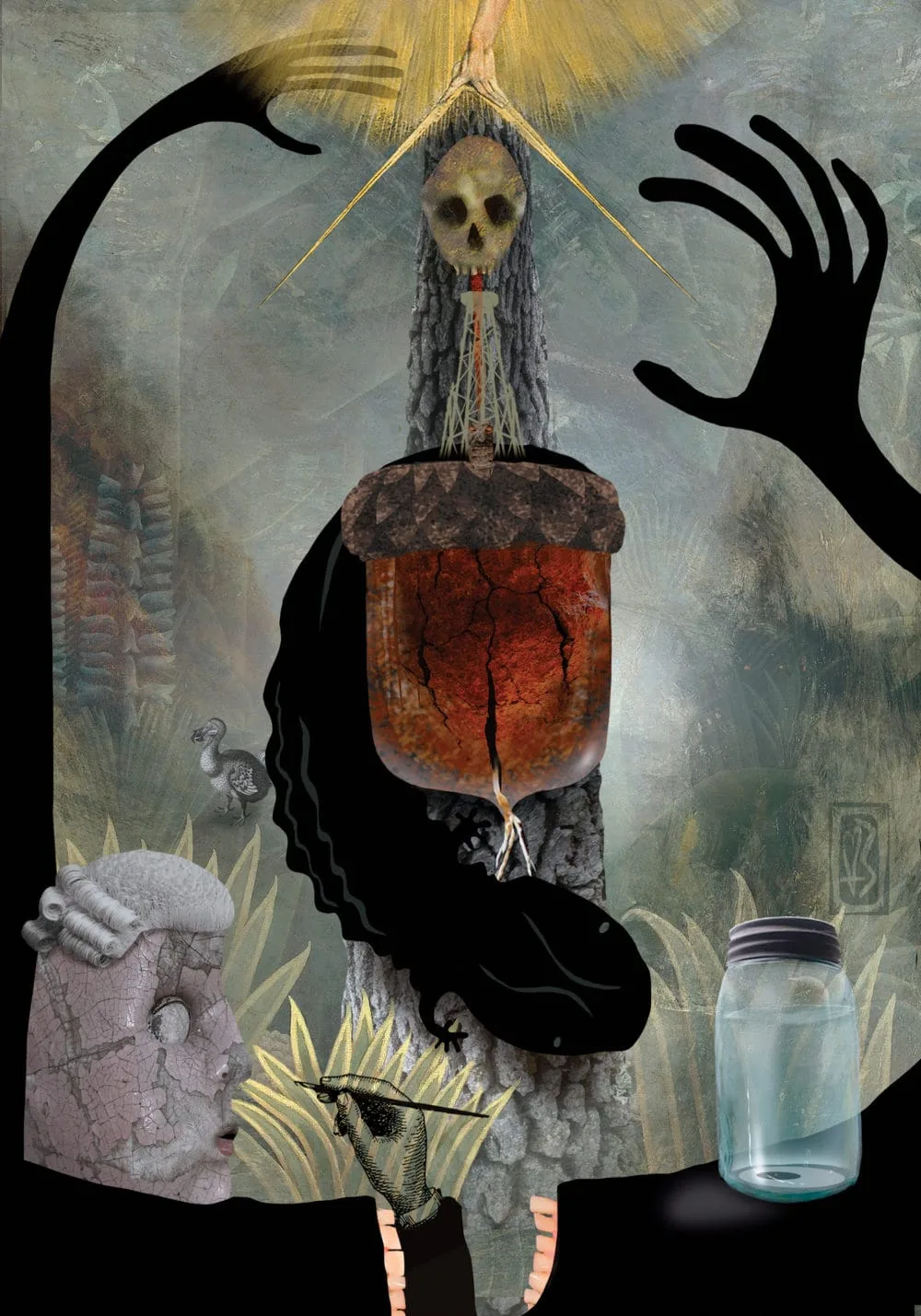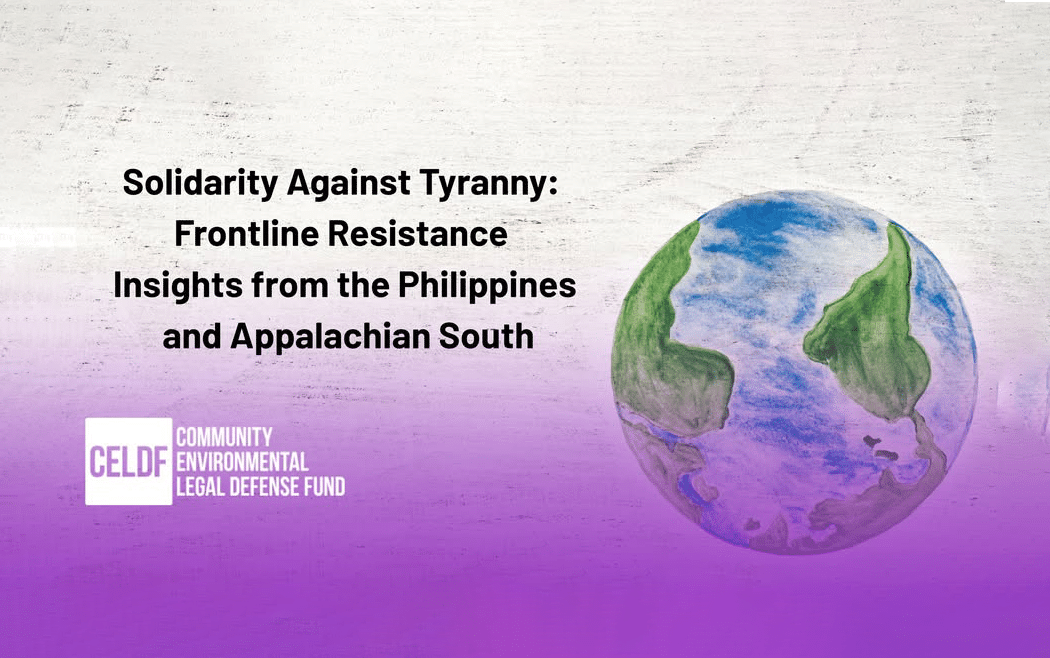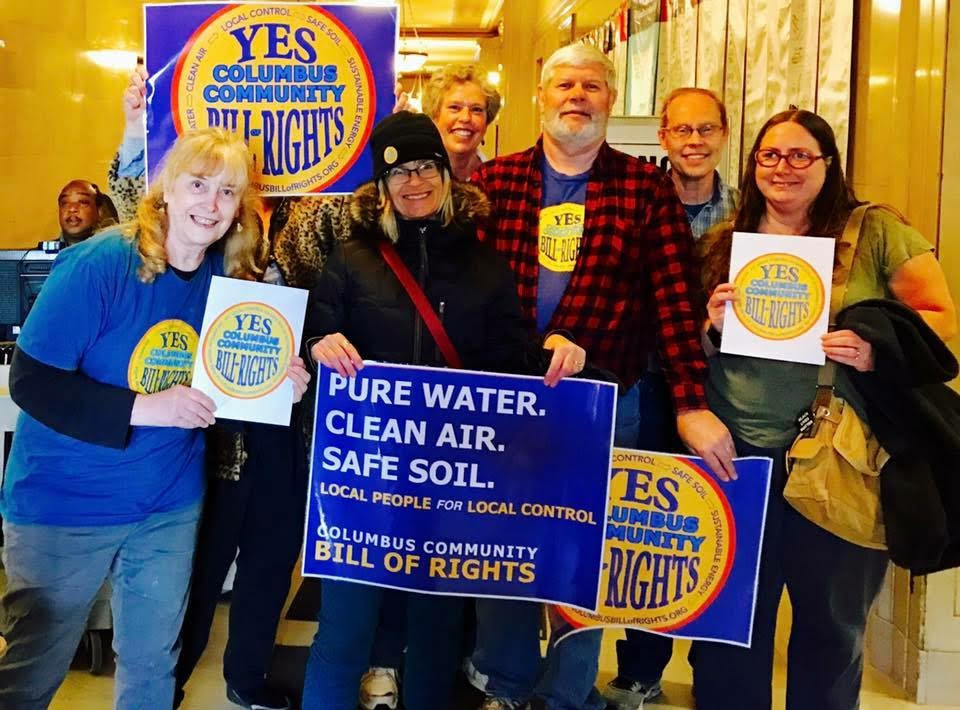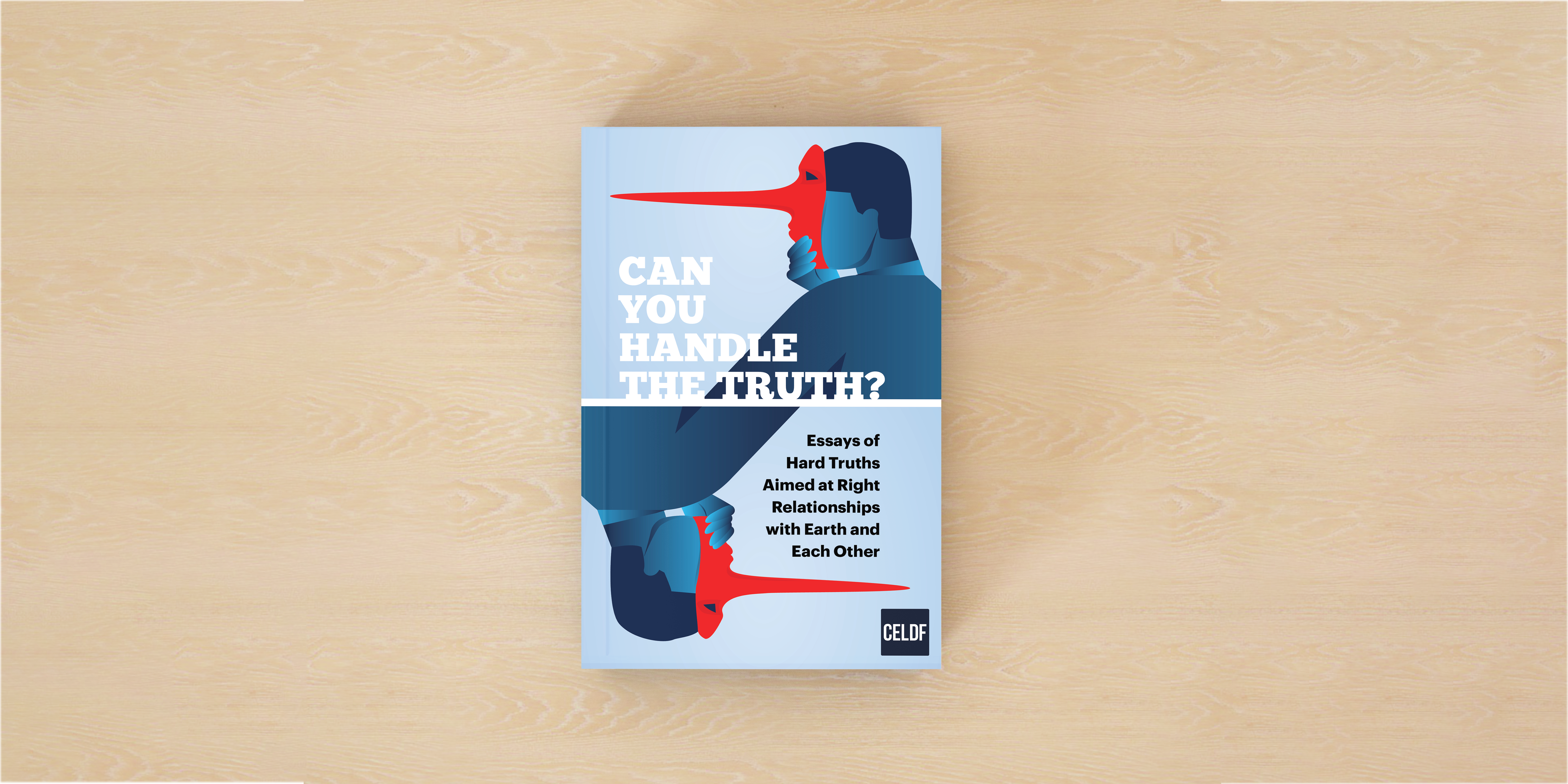Search Results for: rights of nature
CELDF working in India to Recognize Rights of the Ganga River Basin
Contact:
Stacey Schmader
Administrative Director
Info@celdf.org
717-498-0054
MERCERSBURG, PA, USA: On March 20, the High Court of Uttarakhand at Naintal, in the State of Uttarakhand in northern India, issued a ruling declaring that the River Ganga and River Yumana are “legal persons/living persons.” This comes after numerous rulings by the court which found that while the rivers are “central to the existence to half of Indian population and their health and well being,” they are severely polluted, with their very existence in question.
The court declared that throughout India’s history, it has been necessary to declare that certain “entities, living inanimate, objects or things” to be declared a “juristic person.” In the case of the Ganga and Yumana, the court explained the time has come to recognize them as legal persons “in order to preserve and conserve” the rivers.
The movement to recognize certain legal rights of nature and particular ecosystems is growing. Beginning in 2006, the Community Environmental Legal Defense Fund (CELDF) assisted the community of Tamaqua Borough, in the State of Pennsylvania in the United States, to draft and pass the very first rights of nature law in the world. CELDF has since assisted more than three dozen communities across the U.S., as well as the first country in the world – Ecuador – to secure the rights of nature to exist and flourish.
As efforts to advance legal rights of nature continue, CELDF has been partnering with India-based NGOs to recognize fundamental rights of the Ganga River and the entire river basin.
With the Global WASH Alliance-India and Ganga Action Parivar, CELDF drafted the proposed National Ganga River Rights Act. The Act would recognize fundamental rights of the Ganga to exist, flourish, evolve, and be restored, and the people of India to a healthy, thriving river ecosystem. The legislation is now under consideration by India Prime Minister Narendra Modi’s government, which in recent months established a committee within the Modi administration to review the Act.
In calling for significant legal change, in a February 2016 ruling – a precursor to this week’s ruling – the court stated, “The legislation, till now, has not helped to save Ganga. We need a comprehensive legislation at the national level dealing with the Ganga alone.”
With regard to the court’s ruling this week, a CELDF representative explained, “Recognition of personhood rights are an important step forward toward the recognition of the full rights of the rivers to be healthy, natural ecosystems.”
“Such rights would include the rights of the rivers to pure water, to flow, to provide habitat for river species, and other rights essential to the health and well-being of these ecosystems,” they explained. In local laws in the U.S., as well as in the Ecuador Constitution, rights of nature laws secure rights that are necessary to the ability of ecosystems to be healthy and thrive. These laws transform ecosystems from being considered resources available for human use, to living entities with inherent rights.
These laws have been passed as there is a growing recognition around the world that environmental laws premised on regulating the use of nature, are unable to protect nature. They stated, “The collapse of ecosystems and species, as well as the acceleration of climate change, are clear indications that a fundamental change in the relationship between humankind and the natural world is necessary.”
In a February 2016 ruling, the Uttarakhand court wrote, “All the rivers have the basic right to maintain their purity and to maintain free and natural flow.” Whether the court includes these rights within the scope of its recent “personhood” declaration is not clear, or whether courts will expand on the rights recognized this week remains to be seen.
The High Court of Uttarakhand’s ruling comes after the finalization of a settlement agreement between the Maori people and the government of New Zealand regarding the Whanganui River. In that settlement, finalized through a vote of the Parliament, the river is recognized as having personhood rights. CELDF believes that the movement in New Zealand and India to recognize certain rights of ecosystems are important in the growing movement to move away from legal systems which treat nature as property under the law, to laws which recognize inherent rights of nature.
Today, CELDF is partnering with communities and organizations across the United States, as well as in Nepal, India, Australia, Sweden, and other countries to advance rights of nature legal frameworks.
About the Community Environmental Legal Defense Fund (CELDF) & the International Center for the Rights of Nature
The Community Environmental Legal Defense Fund’s mission is to build sustainable communities by assisting people to assert their right to local self-government and the rights of nature. CELDF’s International Center for the Rights of Nature is partnering with communities and organizations in countries around the world to advance the rights of nature.
###
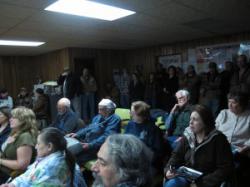
Highland Township in Elk County, PA, adopted a Community Bill of Rights Ordinance in January 2013, codifying the community’s rights to clean air, water, the rights of nature, and to local self-governance – and banning fracking wastewater injection wells as a violation of those rights.
Faced with Seneca Resources Corporation applying for a permit to site an injection well within the Township, the community contacted CELDF to assist in drafting their Community Bill of Rights to protect themselves from the threat of wastewater.
Seneca Resources Corporation has now threatened a lawsuit. With overwhelming community support for the Township Supervisors, the Supervisors have retained CELDF to defend the Community Bill of Rights.
For more information on Highland Township organizing, or Community Rights organizing in Pennsylvania, contact Chad Nicholson at chad@celdf.org.
Whether or not you agree with his strategies, you’ve got to admit that Thomas Linzey has some of the most interesting ideas in environmentalism today. And if ever there was a moment for his community-powered approach to catch fire, it’s now. Given all the grassroots, localized efforts to ban fracking in New York, New Mexico and elsewhere, it could be that the future of his dreams is on its way to becoming reality.
Linzey’s work baRune Mathisensically tackles two linked ideas: first, that a true environmental movement (which he says has never existed in the US) should end its focus on regulation and instead start with the premise that nature has rights. Here’s one of my favorite quotes from our interview.
Unfortunately, you have this huge growth of quasi-green Astroturf environmentalism in the United States which sucks in millions of dollars each year and continues this dream that we can continue treating nature as property, all we have to do is regulate the use of that property a little bit better. And I think that’s crazy.
Linzey points to abolition and women’s suffrage as true movements, where entities once seen as property (slaves, women) worked to have their rights written into the constitution. That, he says, should be the aim of environmentalism.
Second, Linzey says, the rights of corporations (now considered people under the constitution) must be checked. Since there is little pr0spect of either of those things happening on a federal level in the near future, Linzey’s work focuses on helping local communities establish their rights of home-rule to create ordinances on both levels: codifying natural rights and stripping away corporate rights.
I do have questions about this scenario carried out to its logical conclusion. If every locality enacts ordinances banning this and that…what happens when decisions have to be made for the good of the larger community? Transmission lines, say. Or roads. Could we really ever live in a world where those things aren’t necessary? Linzey addresses that question toward the end of our conversation. What do you think?
Thomas Linzey will be speaking at UNM on February 2nd at 7:00 PM. More info
Whether or not you agree with his strategies, you’ve got to admit that Thomas Linzey has some of the most interesting ideas in environmentalism today. And if ever there was a moment for his community-powered approach to catch fire, it’s now. Given all the grassroots, localized efforts to ban fracking in New York, New Mexico and elsewhere, it could be that the future of his dreams is on its way to becoming reality.
Linzey’s work baRune Mathisensically tackles two linked ideas: first, that a true environmental movement (which he says has never existed in the US) should end its focus on regulation and instead start with the premise that nature has rights. Here’s one of my favorite quotes from our interview.
Unfortunately, you have this huge growth of quasi-green Astroturf environmentalism in the United States which sucks in millions of dollars each year and continues this dream that we can continue treating nature as property, all we have to do is regulate the use of that property a little bit better. And I think that’s crazy.
Linzey points to abolition and women’s suffrage as true movements, where entities once seen as property (slaves, women) worked to have their rights written into the constitution. That, he says, should be the aim of environmentalism.
Second, Linzey says, the rights of corporations (now considered people under the constitution) must be checked. Since there is little pr0spect of either of those things happening on a federal level in the near future, Linzey’s work focuses on helping local communities establish their rights of home-rule to create ordinances on both levels: codifying natural rights and stripping away corporate rights.
I do have questions about this scenario carried out to its logical conclusion. If every locality enacts ordinances banning this and that…what happens when decisions have to be made for the good of the larger community? Transmission lines, say. Or roads. Could we really ever live in a world where those things aren’t necessary? Linzey addresses that question toward the end of our conversation. What do you think?
Thomas Linzey will be speaking at UNM on February 2nd at 7:00 PM. More info
On this week’s program, we feature Part I of our interview with Professor Christopher Stone, author of the seminal law review article “Should Trees Have Standing?” on the topic of Rights of Nature. And our roundtable discussion focuses on the international global warming talks taking place in Cancun – we debate their value and what really needs to happen on global warming.
If you’re in the Spokane listening area, you can listen to Democracy Matters every Wednesday at 12:30pm Eastern/9:30am Pacific, or Thursday at 10am Eastern/7am Pacific, at 89.9FM, best heard at 92.3FM. Or you can listen online at KYRS, Spokane’s Thin Air Community Radio.
You can also listen anytime by podcasting the show.
We are also pleased to announce the syndication of the show on Public Reality Radio, WPRR, 1680 AM and 95.3 FM in Grand Rapids. The show airs at 6am Eastern every Tuesday morning.
Each week on Democracy Matters we bring you stories from the frontlines as communities bring rights-based organizing to their communities – asserting their local self-governing authority to make the critical decisions that affect their lives and their community.
If you are interested in having Democracy Matters broadcast on your local community radio station, give them a call and let them know.
Listen to CELDF’s radio program – Democracy Matters – every Thursday at 10am Eastern/7am Pacific at KYRS, Spokane’s Thin Air Community Radio. You can also podcast the show, click on Democracy Matters.
On this week’s program, we discuss the Tea Party – we look at some key races this fall and whether it’s a true, new political party or just a new faction of the Republican Party. We also look at raw milk and the FDA and the dairy industry’s effort to keep it off store shelves. Lastly, we interview Bill Twist of Fundacion Pachamama – which helped Ecuador become the first country in the world to adopt Rights of Nature in its constitution.
Each week on Democracy Matters we bring you stories from the frontlines as communities bring rights-based organizing to their communities – asserting their local self-governing authority to make the critical decisions that affect their lives and their community.
If you are interested in having Democracy Matters broadcast on your local community radio station, give them a call and let them know.
Rights of nature makes it to the capital in New York. Rolling Stone features CELDF, yet again. Wetland rights advocates meet in the Netherlands. CELDF.org gets a whole new look. CELDF’s Can You Handle the Truth? is hot off the presses. Community resistance and resilience becomes the rally cry for transformative change. These are some of the major happenings for the first half of 2025 along with spotlighting major CELDF milestones over the last 30 years all covered in CELDF’s 2025 Mid-Year Impact Report.
$5 million over 5 years – CELDF’s ability to keep innovating, disrupting, and supporting community level action in the name of right-relationship will come from individuals who invest in CELDF so that we can help shape the future. Expanding our community resistance + resilience capabilities, offering more educational tools, and developing our readiness to help guide individuals, organizations, and governments comes by way of CELDF investing in these primary areas of the organization.
Your donations are what makes this all happen and we need you to contribute towards the goal of $5 million over the next 5 years. Please make a donation today.
CELDF’s 2025 Mid-Year Impact Report Get Caught Up. Spread the Word. Give Generously. Celebrate CELDF’s 30th Anniversary!
Contact: Max Wilbert
CELDF Community Resistance and Resilience Director
Max@CELDF.org
206-948-7790
For Immediate Release
Live streaming event on July 21st
How can our movements survive the rise of authoritarian regimes? How shall we respond when our people are jailed, our organizations banned, our speech penalized, and our activist spaces burned to the ground?
These are not idle questions in places like the Philippines and the Appalachian South. The former is one of the world’s most dangerous places for environmentalists and human rights defenders, while the latter is one of the most challenging places for anti-racist activists to organize.
On July 21st, a special live streaming event will bring together grassroots activists from these places to share their experiences of repression and resistance.
The event, called “Solidarity Against Tyranny,” begins at 6pm Pacific Daylight Time (aka 9pm Eastern Daylight Time, or 9am on July 22nd, Philippine Time) and is free to attend.
It is being organized by the Community Environmental Legal Defense Fund (CELDF) in partnership with Highlander Research and Education Center and Blue Earth Defense, and in cooperation with Alyansa Tigil Mina, Ethniko Bandido Infoshop, and the Initiatives for Dialogue and Empowerment through Alternative Legal Services (IDEALS).
“In our sites of struggles in the Philippines, repression against anti-mining activists and front-line communities mainly come in the form of red-tagging, and violent dispersals of organized peaceful protests and barricades, along with the filing of SLAPP suits against protesters by mining companies,” says Jaybee Garganera, National Coordinator for the Alyansa Tigil Mina (Alliance Against Mining) and one of the speakers for the event. “In particular, libel cases are filed against vocal community leaders in order to cow them into silence. In some cases, advocates against mining are killed or harassed with death threats.”
These repressive tactics have not gone unnoticed in the United States. President Donald Trump is an admirer of former Filipino president Rodrigo Duterte, and now the U.S. is experiencing an increasing internal breakdown of basic civil liberties, due process, and separation of powers.
“America is being crumbled into a thoroughly broken state to serve the interests of its oligarchs,” asserted Terry Lodge, Legal Director at CELDF and another panelist at the event. “Silencing opponents of the Gazan holocaust tops the list, followed by eradication of the growing unity among Palestine supporters, opponents of mass deportations, foes of permanent American wars, and those in the way of rampant environmental destruction. Unifying against the hellbent corporate state is the only way to stop the exploitation.”
Denzel Caldwell, Program Manager for Economics and Governance at the Highlander Research & Education Center in Tennessee, agrees.
“This empire and its non-state co-conspirators are seeking to complete the colonial project that began in 1776 when European settlers occupied Turtle Island and enslaved African peoples for profit,” Caldwell says. “Our movements represent the legacy of those who understood this order to be an existential threat to humanity and the global ecosystem. It is through our world-building efforts that we must convince and demonstrate to our communities that another world is possible; one where humanity and the larger ecosystem can co-exist in abundance, not exploitation.”
Another speaker will be Cris De Vera, founder of a mutual aid and community autonomy center known as Ethniko Bandido Infoshop in the northern Filipino city of Pasig. De Vera will present about his organization’s work conducting mutual aid, providing disaster relief, and offering free grassroots services as a way to avoid reliance on increasingly corrupt, unreliable, and hostile institutions and power structures.
“We believe in creating a culture of sharing as a way to minimize our dependency on the State, corporations, NGOs, and any other institutions,” he says. “Sharing is a form of resistance.”
The final speaker will be Mario E. Maderazo, an environmental and human rights lawyer based in the Philippines who specializes in documenting extrajudicial killings and opposing human rights abuses .
Topics covered in the event will include:
-
- What Trump learned from former Filipino dictator Rodrigo Duterte and is now applying in the United States
- Which tactics Filipino resisters have faced as part of crackdowns on activists, press, students, and civil society
- Similarities and differences with the experience of anti-racist organizers at the Highlander Center in Tennessee, pro-Palestine movements, and environmentalists in the U.S.
- How to organize more effectively, protect ourselves and our movements with security protocols, and build solidarity against tyranny
“This is a hands-on lesson for organizers, activists, resistance movements, and revolutionaries,” says Kai Huschke, Executive Director of CELDF.
Many local people refer to the Philippines as “the archipelago” as a decolonized alternative to the Spanish name. The Philippines was colonized by the Spanish for 333 years, until they lost a war with the United States. The U.S. occupied the country for a further 43 years, until the Japanese invaded during World War II. During the U.S. occupation, Filipinos waged a national liberation struggle. During this time, between 250,000 and 1 million Filipino civilians died, thousands of them in concentration camps, while back in the United States, principled activists opposed the war.
Over recent decades, comprador governments in the Philippines have worked closely with the United States while waging war on the poor and on resistance movements under the auspices of “the War on Drugs” and NTF-ECAC (The National Task Force to End Local Communist Armed Conflict).
To attend, register here: https://us02web.zoom.us/webinar/register/WN_jYOdEObrQDKCJ6mbrxYdjw#/registration
###
About CELDF — Community Environmental Legal Defense Fund
CELDF is a nationwide community of organizers, lawyers, and partners who educate, agitate, and organize to confront systemic injustice and restore humanity’s reciprocal relationship with Earth. For over 30 years, we’ve helped communities resist corporate exploitation, reject regulatory false promises, and assert their right to self-govern through systems grounded in ecological balance and collective power.
Today, CELDF continues to promote and collaboratively define Rights of Nature principles through proposed legislation like the Great Lakes Bill of Rights, introduced into the New York State Assembly by Member Patrick Burke, and a number of pending local bills, its Truth, Reckoning, and Right-Relationship program, and now expanding its efforts into community resistance and resilience efforts.
More information about CELDF, including photos pre-approved for media use, can be found in our press kit.
Contacts:
Tish O’Dell, CELDF Consulting Director Tish@CELDF.org 440-552-6774
Bill Lyons, Columbus Community Bill of Rights wmlyons@gmail.com 614-551-6194
For Immediate Release
Columbus Residents Strike Back Against “Liquidation of the Right to Local Self-Determination”
COLUMBUS, OH – What can a community do when the democratic process itself has been outlawed?
That’s the question facing residents of Ohio. In 2019, the State legislature prohibited communities from enacting “rights of nature” laws after Toledo residents overwhelmingly voted for a law, the Lake Erie Bill of Rights. The budget bill passed on July 17th of that year established that “nature… does not have standing to participate in or bring an action in any court.”
In 2020, the State doubled down, passing a so-called “preemption law” in response to the city of Athens and Cuyahoga County (where Cleveland is located) passing laws banning single-use plastic bags.
Some Columbus residents, like Bill Lyons of the Ohio Community Rights Network, say that enough is enough.
“The shredding of Ohioans Constitutional home-rule and local self-governing rights has gone on too long,” says Lyons, “it is time for the people of Columbus to reclaim these rights so that we can truly create the just city we envision for ourselves, the natural environment, and future generations.”
Lyons and other local citizens are seeking to overturn this undemocratic process within their city. On May 15th, they submitted a proposed city charter amendment initiative petition to the city, seeking to ask voters on the November 2027 ballot if they will reject state preemption and reaffirm the right to make decisions locally.
The proposed amendment states that “the principle and practice of home rule and local self-government in Ohio, as established in 1912, has been increasingly infringed upon and eroded by state legislature overreach via the practice of state preemption,” including by preventing residents from legislating on important community issues such as “minimum wage protections, gun laws, oil and gas bans, rent control protections, knife laws, plastic bag bans, rights of nature, flavored tobacco bans, pesticide use, red-light camera use, telecommunication installations, natural gas hookup bans, puppy mill bans, paid leave, and many others.”
Since 2012, over three dozen rights of nature and community rights initiatives for inclusion on city and county ballots in Ohio have faced varying levels of obstruction from the state. Fifteen measures have been kept off the ballot. Of those that did make it onto ballots, six were passed into law by voters, and one by city council vote.
According to Grace Leng of Rank The Vote Ohio, this is a fundamental violation of democracy and self-determination.
“Ohio cities’ constitutional right to home rule is vital for local self-government,” Leng says. “State preemption undermines the community’s ability to address local needs and puts decisions in the hands of politicians detached from we the people.”
Another supporter of the effort is Columbus resident Greg Pace, who says that this fight echoes one that took place over a hundred years ago.
“It was a long and contentious fight by the people to add into the Ohio constitution in 1912 the right to modify the laws of the state through citizen initiatives,” Pace says. “Those rights have been systematically liquidated over the past century by the state legislature. Home rule in Ohio has taken a similar turn, as the legislature reactively shuts down local laws that big-moneyed lobbying interests dislike. In today’s political climate, it is more important than ever for our democratic way of life, to affirm our rights and protect our community turf, health and especially our safety.”
Detractors of the bill have argued that home rule opens up the possibility for communities to legislate regressive retractions of rights. But the proposed amendment in Columbus sidesteps those concerns since local laws passed under the bill cannot legally “alter or restrict the existing fundamental rights of natural persons, their local communities, or nature [or] weaken protections for natural persons, their local communities, or nature provided by state, federal, or international law.”
In other words, Columbus will be able to pass laws that strengthen the rights and protections already recognized for living entities, but not laws that weaken them.
“The state should be able to set baseline protections for things like minimum wage and environmental protection,” says Lyons. “But for the state to outlaw communities from implementing higher levels of protection for health, safety and welfare through what’s called ‘ceiling preemption’ is unjust, immoral, and should be illegal.”
The Community Environmental Legal Defense Fund (CELDF), an organization that specializes in working with communities to draft bills, has been assisting organizers in Columbus since 2015 with ordinances and charter amendments to protect the community’s water, air, soil and residents from the toxic effects of fracking. All four of this group’s previous attempts have been kept off the ballot for one reason or another, with preemption being a factor in several of the denials.
Tish O’Dell, Consulting Director at CELDF, has been involved with every one of their attempts. “I am so impressed with the tenacity and evolution of this group of residents,” she says. “Columbus is the state capital and largest city in Ohio, so collecting the required amount of signatures to get an initiative on the ballot is hard. And yet, they keep coming back.”
To learn how you can help with this campaign locally, please contact Columbus Community Bill of Rights at their website or Bill Lyons directly at wmlyons@gmail.com.
To learn more about all the previous efforts in Columbus and other Ohio communities, you can read the book “Death By Democracy – Protecting Water and Life: Frontline Stories from Ohioans fighting Corporate and State Power.”
###
About CELDF — Community Environmental Legal Defense Fund – celdf.org
CELDF is a nationwide community of organizers, lawyers, and partners who educate, agitate, and organize to confront systemic injustice and restore humanity’s reciprocal relationship with Earth. For over 30 years, we’ve helped communities resist corporate exploitation, reject regulatory false promises, and assert their right to self-govern through systems grounded in ecological balance and collective local power.
More information about CELDF, including photos pre-approved for media use, can be found in our press kit.
Contact: Tish O’Dell, CELDF Consulting Director
440-552-6774
For Immediate Release
A collection of essays that confront the root causes of the interconnected ecological and social crisis
MERCERSBURG, PA – The Community Environmental Legal Defense Fund (CELDF) is proud to announce the publication of “Can You Handle the Truth? Essays of Hard Truths Aimed at Right- Relationships with the Earth and Each Other.”
It includes pieces written by Kai Huschke, Tish O’Dell, Terry Lodge, Michelle Beatty, Max Wilbert, Will Falk, Chad Nicholson, and Ben G. Price.
“The essays and articles collected in this book demonstrate how — again and again — corporate power in this country has successfully ignored obedience to the Laws of Nature while demanding legal adherence to the Laws of Profit, a profit accrued with total contempt for the Laws of Nature,” writes Robert Shetterly, activist and artist behind the portrait series Americans Who Tell the Truth, in his foreword. “It gives us guidance of how to think and what to do as we accept our responsibility to the world. It gives us no false hope. It presumes that if we want to survive, we want to know what we’re up against.”
The essays in “Can You Handle the Truth?” tackle a wide range of challenging topics with many based on current events over the past decade, including:
- Police violence against Black community members like Mike Brown
- How the government ignores indigenous sovereignty and community self-determination
- Pollution and coverups in East Palestine, OH after a train disaster
- Censorship of the inconvenient film Planet of the Humans
- Courts’ role in suppressing dissent via the “Our Children’s Trust” legal case
- How the U.S. Constitution prioritizes property and wealth over people and planet
- The failure of traditional legal approaches and regulations to protect the environment
- The destructive impacts of consumerism and capitalism
Despite the crises we face, the book offers a message of hope through resistance and resilience. The Rights of Nature Movement is presented as a powerful alternative to the current system, one that prioritizes the well-being of the planet and all its inhabitants. The book also highlights the importance of adopting a new value system towards the natural world, draws connections between the struggles of native communities and non-native communities in resource extraction areas, and argues that capitalism and growth are ecological dead ends.
“This book doesn’t pull any punches,” said CELDF’s Consulting Director Tish O’Dell, who helped assemble the compilation. “The essays force us to confront the hard realities of our current system and imagine a radically different future. But we believe these truths are necessary to catalyze the transformative change our communities and ecosystems so desperately need.”
CELDF pioneered and remains at the forefront of the Rights of Nature Movement, supporting communities in their struggles against corporate exploitation and government overreach. The organization continues this work even as states like Utah, Florida, and Ohio move to ban the recognition of nature’s rights.
“‘Can You Handle the Truth’ is a clarion call to action,” added CELDF Executive Director Kai Huschke. “It challenges us to develop new values, new systems, and new ways of relating to the natural world. We hope this book will inspire readers to join us in building a more just, sustainable, and democratic future.”
Despite the banning of rights of nature in several states, CELDF remains committed to its mission to protect the rights of nature and promote local democracy. ‘Can You Handle the Truth?’ is ultimately a call to reexamine foundational principles and beliefs in the interest of future generations, and to co-create right-relationship with non-human life by way of grassroots solutions instead of reliance on a regulatory regime that regulates activists instead of polluters and slash-and-burn profiteers.
The authors of the essays in the collection are now available for radio and broadcast interviews, book talks, and podcast appearances.
“Can You Handle the Truth” is available for a special pre-order price in print and as an e-book for a limited time.
###
About CELDF — Community Environmental Legal Defense Fund
CELDF is a nationwide community of organizers, lawyers, and partners who educate, agitate, and organize to confront systemic injustice and restore humanity’s reciprocal relationship with Earth. For over 30 years, we’ve helped communities resist corporate exploitation, reject regulatory false promises, and assert their right to self-govern through systems grounded in ecological balance and collective power.
Today, CELDF continues to promote and collaboratively define Rights of Nature principles through proposed legislation like the Great Lakes Bill of Rights, introduced into the New York State Assembly by Member Patrick Burke, and a number of pending local bills, its Truth, Reckoning, and Right-Relationship program, and now expanding its efforts into community resistance and resilience efforts.
More information about CELDF, including photos pre-approved for media use, can be found in our press kit.
Feature Image: A small town glows beneath a starry sky. (harpazo_hope / Getty Images)
Carlyn Zwarenstein writes about science for Salon. She reached out to get a Rights of Nature perspective from CELDF’s Education Director, Ben Price.
But voluntary standards for light pollution, like voluntary standards for much else where profit and community or ecosystem well-being might be at odds, have a habit of failing to meet the need, of being inconsistently applied, and of simply being ignored. In fact, Ben Price, director of education at the Community Environmental Legal Defence Fund, which assisted in establishment of the world’s first community rights of nature legislation, notes that the establishment of minimum protected areas tends to be supported or even promoted by the corporations that cause greatest environmental harm, effectively maximizing the amount of harm that can be done everywhere else.
The federal Clean Air and Clean Water acts, and similar state laws, likewise set out in law just how much degradation or destruction of the natural world corporations or others can get away with. Partly as a result, environmental damage is far, far worse and natural habitats are far smaller and more fragmented than they were half a century ago, before these pieces of legislation existed.
In the first part of the program, author and Community Environmental Legal Defense Fund’s education director Ben Price joins the program to talk about his new book, Wouldn’t You Say, A Collection of Essays on Environment and Community. In the book and in our conversation, Ben explains that what we’re seeing today is not a perversion of the promise of America, it’s actually a proof of concept, a continuation of foundational ideologies never meant to protect we, the people, and certainly not to protect the ecosystems of which we are a part. Ben discusses rights of nature not as a legal north star but as a need to shift our thinking about relationships, between ourselves, the law, and empirical reality. Next up, Dr. Kim Wilson and Maya Schenwar join the show to discuss the book which they co-edited, We Grow the World Together: Parenting Toward Abolition. Maya and Kim discuss this multi-generational project which also combines voices from the inside and outside, highlighting the contrasts and connections between the carceral systems of literal and figurative cages, and how prisons are and have been the canaries in the coal mine for the restrictions on our basic rights. They discuss abolition as a tearing down but perhaps even more so of a building up, how kids are integral to the creative imagination necessary for building new worlds, and the emergent possibilities outside of our current death-making system.
